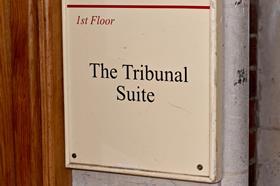A barrister who invoiced a client on chambers letter-headed paper but asked for fees to be paid to his personal bank account has been disbarred for acting dishonestly.

Ravi Sidhu, called by Inner Temple in 1988, was instructed through Birmingham-based Citadel chambers to act in an inquest. He prepared five invoices, all on headed paper, totalling more than £44,000. Four of the invoices were paid while the last, for £6,510, was waived by Sidhu.
Sidhu, who denied the charges, was found to have acted dishonestly over the invoices. He was also found to have acted dishonestly in creating a misleading impression to his client and instructing solicitor that the matter was being conducted through chambers.
The tribunal heard that Sidhu, a former CPS lawyer and deputy coroner who has now retired, paid the £6,593 due to the chambers once he became aware there was an issue.
Sidhu told the Bar Tribunals & Adjudication Service that he assumed chambers knew about the work and his invoicing was an honest mistake. In closing submissions Sidhu, who represented himself, spoke of his ‘deep regrets at the situation’ and apologised adding: ‘I am sorry for the distress I caused’. He added the client had agreed the outcome of the case ‘was a positive one for her’.
Read more
But the four-person panel dismissed Sidhu’s defence and found the two allegations against him proved. Chair Her Honour Sara Staite said Sidhu ‘should have been aware of the terms in which chambers treated professional fee income’ adding that the dates in his diary, which were marked out as holiday when he was working on the inquest case, ‘did not corroborate with the details on the [chambers] system’.
The tribunal said Sidhu’s ‘motivation to behave as he did was to avoid paying chambers’ money in relation to fees received’ and his ‘intention [was] to benefit financially from the work he had undertaken’. The chair said the invoices ‘created a misleading impression to the client and/or instructing solicitor’.
‘Mr Sidhu acknowledged [the client] was extremely surprised and distressed that work he had undertaken on her behalf was not undertaken under chambers. The fees paid by her totalling in excess of £40,000 were paid directly to Mr Sidhu’s bank account and not through chambers. By sending invoices on chambers headed notepaper Mr Sidhu created an impression which was highly misleading.'
Disbarring Sidhu, the chair said Sidhu’s client was a ‘vulnerable person who had recently been bereaved’ and the tribunal ‘had no alternative but to disbar’. Sidhu was also ordered to pay £3,000 costs.


























